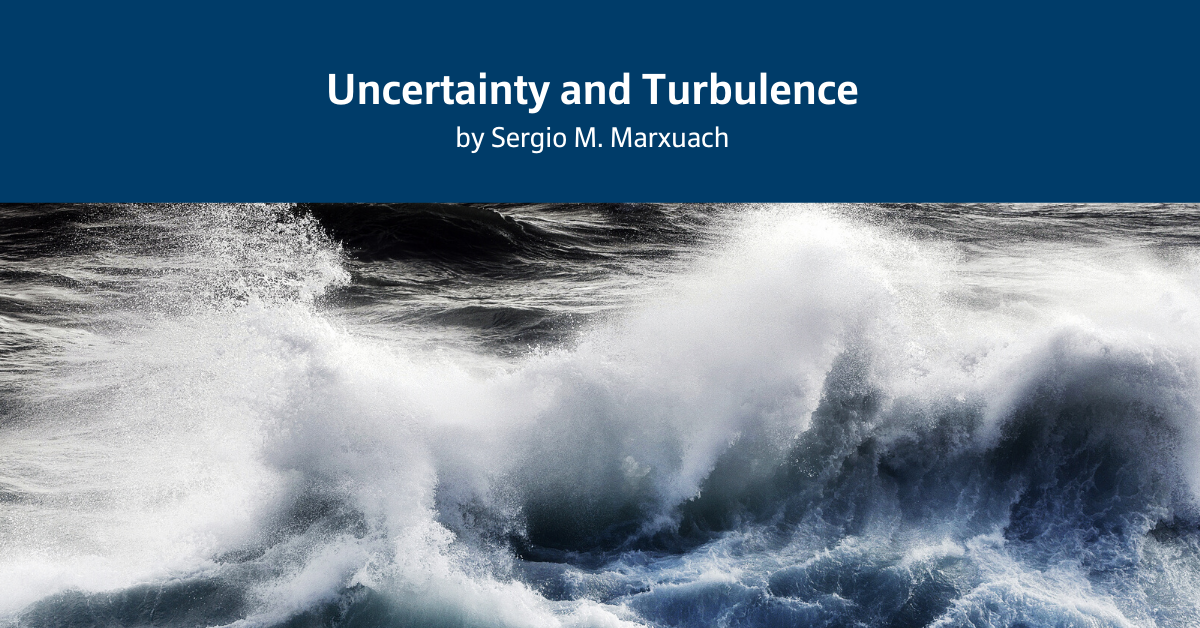
Published on June 25, 2020 / Leer en español
Dear Readers:
This week we focus on two important issues for Puerto Rico. First, we take a look at recent court decisions holding that Congress cannot discriminate against the residents of Puerto Rico and Guam in the application of the Supplemental Security Income program.
Second, we highlight some of the difficulties inherent to case tracking and contact tracing. These processes appear deceptively simple at first sight, but they do require a significant investment of time, money, and human resources. These issues become all the more important as airlines ramp-up their flights to Puerto Rico, especially from the mainland United States, where more than twenty states are experiencing a significant uptick in COVID-19 cases. This influx of people may cause a widespread COVID-19 outbreak in Puerto Rico, with severe health and economic consequences. Hence the importance of implementing a robust system to track cases and trace contacts in the island.
—Sergio M. Marxuach, Editor-in-Chief
Insights + Analysis from CNE
Impact of the Supplemental Security Income in Puerto Rico
In the video below, Rosanna Torres explains the SSI program and why it should be extended to cover eligible populations in Puerto Rico. The video is in Spanish.
The Supplemental Security Income (SSI) is a federal means-tested entitlement program that provides cash assistance to blind and/or disabled individuals, and people over the age of 65 who face extreme difficulty in meeting basic living expenses. Though the program operates in the 50 states, the District of Columbia, and the Commonwealth of the Northern Mariana Islands, the program is not available to residents of Puerto Rico, Guam or the U.S. Virgin Islands. Instead, these territories participate in the Aid to the Aged, Blind, or Disabled (AABD) program, the inferior program that was reformed in the 1970s to create SSI and improve the assistance provided to this needy population.
Two recent court rulings have found this categorical exclusion of the residents of Puerto Rico and Guam to be unconstitutional. In our analysis this week, our Washington D.C. office takes a closer look at the impact the SSI program could have for Puerto Rico’s residents and the potential economic benefits associated with it.

The Importance of Tracking the Coronavirus
Contact tracing is one of the most important tools invented by health experts, given that it helps to break up the chains of transmission of numerous diseases. Broadly speaking, it is a process that seeks to identify, evaluate, and support people who have been exposed to a disease, in order to prevent its further spread. It has been key in the fight against numerous viruses, from HIV and Ebola, to today’s coronavirus that continues to spread at a very fast pace in many parts of the world. Far from being a simple exercise, effective contact tracing requires a combination of resources — human, financial, and coordination-related, among others — that vary according to location and the prevailing socioeconomic dynamics. This engaging story published by the New Yorker reviews the efforts of the Massachusetts State Community Tracing Collaborative and reveals key details about the complexity of the program and the challenges it faces, even though they have the needed funds and a good number of trained individuals at their disposal.
In Puerto Rico, there are currently several municipal case-tracking programs, most of which were inspired by a model devised in the Municipality of Villalba. Although many of the programs are just beginning, we at CNE are interested in carefully studying these new municipal services that are essentially set up from scratch and with few resources. At present, we are working on a case study on the Villalba contact tracing program, in partnership with Ciencia Puerto Rico, and hope to expand our inquiry to other municipalities. Beyond bringing you a good story about municipal inventiveness, we are interested in identifying successful practices and policies that serve to improve our public health infrastructure. More to come.
In Case You Missed It

Significant uncertainty. That was the phrase Jerome Powell, Chairman of the Board of Governors of the Federal Reserve System, used to describe the recovery of the United States economy in his testimony before the Senate Committee on Banking, Housing and Urban Affairs.
That uncertainty arises mainly from the health crisis caused by the SARS-CoV-2 virus. The speed with which this virus, which causes COVID-19, has spread around the world has been amazing, affecting more than eight million people in 188 countries or territories, causing the death of more than 400,000 human beings. Efforts to mitigate the ravages of the pandemic, in turn, have caused the deepest collapse in economic activity since 1945. According to World Bank data, the current recession is the fourth-worst since 1871, second only to the declines in economic activity during the two great wars of the 20th century and the Great Depression, and its analysts estimate that almost 90% of all countries are in recession, the highest share in 150 years.

ReImagina’s First Phase was Completed Successfully
The first phase of the ReImagina Puerto Rico project, which began planning efforts in 2017, was successfully concluded this month. In its initial phase, ReImagina convened and participated in 77 dialogues with 748 participants, and developed 97 specific recommendations, 6 sector reports and a general report to rebuild a stronger, fairer and more prosperous Puerto Rico. The ReImagina Puerto Rico Report was referenced in both the Puerto Rico Government’s Economic and Disaster Recovery Plan (the “Recovery Plan”) and the Puerto Rico Department of Housing’s Disaster Recovery Action Plan for the first tranche of CDBG-DR funds. More than 66% of the 276 specific actions set forth in the Puerto Rico Recovery Plan were based on ReImagina’s recommendations.
In 2019 ReImagina became a permanent program of the Center for a New Economy and since then it endeavored to implement some of the recommendations included in its reports. In collaboration with local and international nonprofit organizations, ReImagina developed several recovery tools, such as the Guide for Resilient Community Center Design in Island Communities, the Guide to Increase the Resilience of Homes Against Hurricanes, and a digital directory of construction industry resources in Puerto Rico (construccionpr.org). ReImagina provided seminars on stormwater management and developed a toolkit with the available funding sources. ReImagina also finalized the development of its public online database that maps reconstruction and recovery projects in Puerto Rico, in particular those led by NGOs and private entities.
The difficult fundraising environment that has existed in Puerto Rico during the last several years, as well as the challenges of being an independent program that does not accept government funding ultimately limited ReImagina’s ability to fully execute the second phase of the project.
Stage two of ReImagina, which consists of completing the execution of the program, will be placed in hiatus until funding is identified to undertake the project.
On Our Radar...
![]() Female-dominated Sectors Suffer Disproportionate Job Losses During the Pandemic – Reporting by Sarah Chaney for the Wall Street Journal finds that “female workers account for the majority of service-sector jobs, including food service and personal care, which are more vulnerable to social-distancing measures and have suffered the brunt of losses during the current economic crisis. Married women, who in past recessions took jobs to offset lost wages when their husband or male partner was laid off, also are less likely to seek work because their employment prospects are now limited…”
Female-dominated Sectors Suffer Disproportionate Job Losses During the Pandemic – Reporting by Sarah Chaney for the Wall Street Journal finds that “female workers account for the majority of service-sector jobs, including food service and personal care, which are more vulnerable to social-distancing measures and have suffered the brunt of losses during the current economic crisis. Married women, who in past recessions took jobs to offset lost wages when their husband or male partner was laid off, also are less likely to seek work because their employment prospects are now limited…”
![]() Deaths of Despair and the Pandemic – Princeton professors Anne Case and Angus Deaton argue that “America finds itself in the grips of two epidemics, each of which has exposed deep inequalities across races and levels of educational attainment. Between rising ‘deaths of despair’ among working-class whites and higher COVID-19 mortality rates among African-Americans, the stunning secular decline in US life expectancy will continue.”
Deaths of Despair and the Pandemic – Princeton professors Anne Case and Angus Deaton argue that “America finds itself in the grips of two epidemics, each of which has exposed deep inequalities across races and levels of educational attainment. Between rising ‘deaths of despair’ among working-class whites and higher COVID-19 mortality rates among African-Americans, the stunning secular decline in US life expectancy will continue.”
![]() What Economists are Worried About – According to Annie Lowrey writing for The Atlantic, “People are still frightened. Americans are still dying. But the next, queasy phase of the coronavirus pandemic is upon us. And it seems likely that the financial nadir, the point at which the economy stops collapsing and begins growing again, has passed.” However, “at least four major factors are terrifying economists and weighing on the recovery: the household fiscal cliff, the great business die-off, the state and local budget shortfall, and the lingering health crisis.”
What Economists are Worried About – According to Annie Lowrey writing for The Atlantic, “People are still frightened. Americans are still dying. But the next, queasy phase of the coronavirus pandemic is upon us. And it seems likely that the financial nadir, the point at which the economy stops collapsing and begins growing again, has passed.” However, “at least four major factors are terrifying economists and weighing on the recovery: the household fiscal cliff, the great business die-off, the state and local budget shortfall, and the lingering health crisis.”
